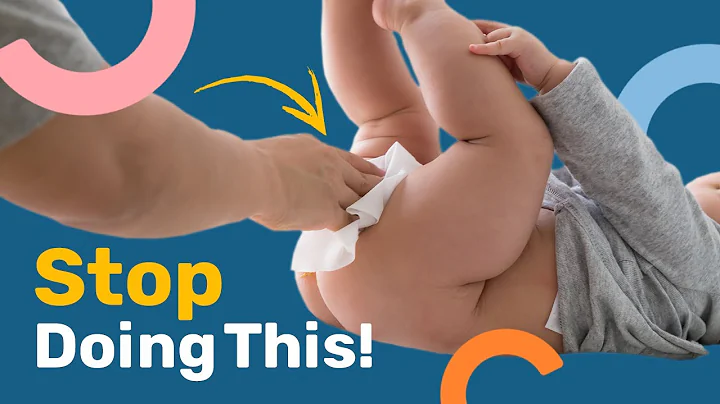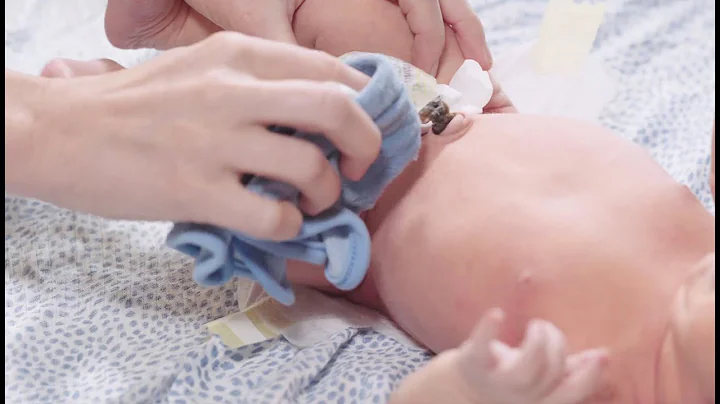New parents are always at a loss when faced with a newborn, not knowing how to take care of such a small baby. Today I will give you some reference from the aspects of feeding, defecation, and umbilical cord care of newborn babies.
Precautions
1. Any medication for infants must be prescribed by a doctor. Many medications taken by adults can cause disability or even death in infants and young children.
2. After birth, babies must gradually adapt to the normal living environment - bright and relatively noisy during the day; dark and relatively quiet at night. Never draw the curtains or tiptoe during the day and leave the constant light on at night.
3. It is forbidden to shake the baby vigorously, as it may damage the brain, and may cause cerebral hemorrhage and mild concussion.
4. Do not tie any part of the newborn's body, especially the calf. As the child grows, the legs will gradually straighten naturally.
5. Avoid covering your face at any time to prevent suffocation of newborns, especially no toys, diapers, packaging bags, etc. near the baby's head.
Breastfeeding
Newborns should suck their mother's breasts as early as possible and as much as possible after birth. The earlier and more sucking, the better for milk secretion.
Breastfed babies are fed on demand. You can feed your baby as long as the baby wants to eat.
A baby within a few days of birth must be fed at least 8 times a day; the baby can be heard swallowing during each feeding; the baby can be seen urinating every day, and the color is not pink urate crystallization; the defecation is yellow or yellow Light yellow-green stool; if the weight loss after birth does not reach 7% of the birth weight, it means that the mother has sufficient milk and should insist on exclusive breastfeeding.
If formula powder must be added, it should be added after each breastfeeding session.

Burping
Burping a newborn is a difficult problem for most new parents.
teaches a simple method: an adult lies on a recliner, with the body and the ground at an angle of approximately 45 degrees. After feeding, the child should lie on the adult's body with his head slightly higher than his shoulders to avoid suffocation . Adults can pat or stroke the baby's back. Even if they don't stroke, the baby will hiccup within a few minutes. This method is simple and safe.
When an adult holds a baby, one hand must hold the baby's waist and one hand, and the other hand should hold the neck to prevent the head from shaking.
After the baby has finished feeding, hold him flat for a while, and then slowly stand up, allowing the baby's head to rest on the adult's shoulder. Standing for a while usually causes hiccups. If you really don’t want to hiccup, make a hollow shape with your hands and pat your back gently.

Milk overflow
Infants have milk overflow, which is mostly caused by the physiological relaxation of the lower end of the esophagus and the opening of the gastric cardia, and the reflux phenomenon that occurs when abdominal pressure increases. Generally, no special treatment is required and symptoms will gradually lessen and disappear within a few months. However, during the period of milk overflow, the bed surface can be turned into a 15-30 degree slope. Choosing to sleep on the side can effectively reduce milk overflow.
Note: It is not a pillow, but the whole body. At least the upper body is on the slope, so as not to have an adverse effect on the spine.

Umbilical cord care
After the baby is born, the umbilical cord is cut off, and the stump quickly dries and becomes mushroom-like, covering the root of the umbilical cord, making it difficult for some secretions to be discharged, causing local infection and yellow/bloody secretions.
Clean the umbilical cord stump of newborns every day, not just on the surface, but also to the root of the umbilical cord. Because the umbilical cord stump has lost nerve control, there is no pain during cleaning.
Nursing method: After bathing, dry the water around the umbilical cord, and use 75% alcohol to disinfect the umbilical cord area; Do not cover the umbilical cord with diapers, and change diapers frequently to prevent urine from contaminating the umbilical cord.
Generally, the umbilical cord will fall off in about two weeks. After it falls off, it needs to be cleaned for a few days.
If the wound does not heal after the umbilical cord falls off and there is oozing blood or purulent secretions, the child should be sent to the hospital for treatment immediately.
Jaundice
Many breastfed babies, neonatal jaundice can last 1-2 months. As long as it is not pathological jaundice and the jaundice level does not exceed 15mg/dl or even 17mg/dl, there is no need to be too nervous.
Whether the baby's jaundice level requires exposure to light is related to the day of birth. Do not easily suspend breastfeeding, accept inappropriate formula powder, or easily take medicine to reduce jaundice just because of mild jaundice.
Many jaundice index exceeds 17mg/dl. Doctors will recommend considering phototherapy. It is important to promote light therapy for neonatal jaundice. Phototherapy can be performed in the hospital but requires hospitalization. For less severe cases, the hospital rents phototherapy blankets to parents so that home phototherapy can be performed. This can reduce hospitalization costs, allow for light therapy, and allow breastfeeding to continue at home.
The main cause of neonatal jaundice is the increased destruction of by red blood cells after birth (due to high red blood cell levels during the fetal period), immature liver function, slow intestinal excretion and other reasons. Lighting and increasing feeding will be effective. Phototherapy is a very safe method. Eating more milk and defecating more can also promote bilirubin to be quickly excreted from the body.
Red rash
Babies’ skin is very delicate and prone to red rash. The main cause of rash is related to local overheating and air tightness.
Eczema , also known as atopic dermatitis, has a rough surface, red base, accompanied by desquamation and exudation.
For mild eczema, apply baby moisturizing cream after cleansing every day, and apply it twice a day.
The best way to treat severe diaper rash is to keep the area dry. Rinse your buttocks with clean water after each defecation. Try not to use paper towels or soft cloths to dry them. Let them dry for a while to keep them dry.
Babies under 1 year old, including newborns, have relatively short necks, and their neck skin is particularly prone to rashes, ulcers, peeling, local odor, and even infection. There are very quick and effective ways to protect the neck from dryness, such as encouraging children to hold their neck while they are awake, using a hair dryer to blow hot air on the weak setting, etc.
In case of serious rash or eczema, it is recommended to take the baby to the hospital and take medication according to the doctor's instructions.
Colic
html If a baby under 16 months cries for unknown reasons, especially if it cries regularly, Infant colic should be considered first. Infantile colic is most common in babies between 3 weeks after birth and 4-6 months old.
Mainly due to immature gastrointestinal development, formula-fed babies are more likely to have such problems. The symptoms are: flatulence , easy to cry, restless sleep, easy to burp, vomit milk, difficulty in defecation, but not dry stool. I like to be held or sleep on my stomach because it feels more comfortable.
Effective treatment method: Let the baby lie prone, massage the abdomen in a clockwise direction to help the baby pass gas, and give the baby probiotics .
Defecation
The gastrointestinal development of newborns is immature, and they are prone to defecation while eating. The stools are also loose and contain indigestible particles, commonly known as "milk flaps". This is a sign of incomplete digestion of milk.
As long as the newborn eats normally, gains weight of 20-30 grams or more per day, sleeps normally, and has no other abnormal symptoms, there is no need to do anything extra for stool characteristics. The baby's intestines will gradually mature.
Whether there is a problem, you should consider:
1. Whether there is blood, clay color or obvious changes in the stool;
2. The baby's weight growth is hindered or weight loss.
If you have the above problems, you need to go to the hospital for examination. The doctor will help rule out allergies, lactose intolerance and other causes.
Some babies, even if they are breastfed, can have several days between defecations, but they do not have dry stools. This situation is not constipation, but " belly ".
As long as it does not affect eating, grows normally, and has no other discomforts, it is okay.Not every baby will have a bowel movement once a day, but with the addition of complementary foods, especially vegetables (foods rich in fiber), the bowel movement will gradually become regular, usually once a day.

[Yitong Baby Newborn Micro Movie]
The exclusive memory of each newborn family
Record the umbilical cord care after the birth of the newborn through images
Measuring height, weighing, footprints and other sacred scenes
The latest status of the baby after birth At a glance
Grasp the most beautiful newborn moments in life
Let the missing part of the new family
no longer have any regrets!
Give a gift to every new life
Add the icing on the cake to every deep love





















